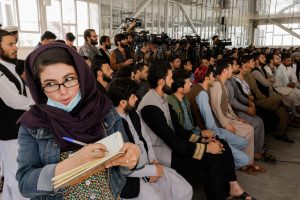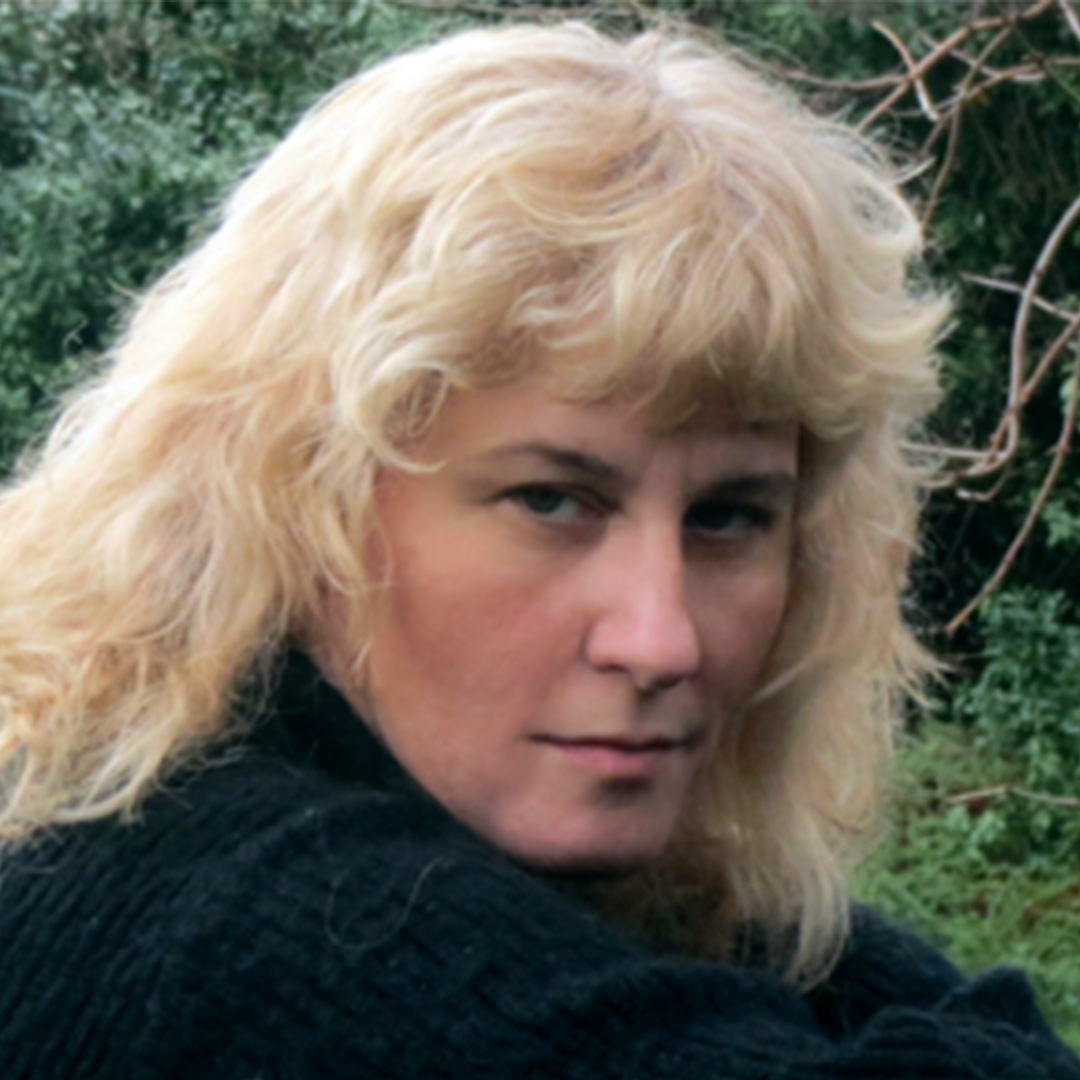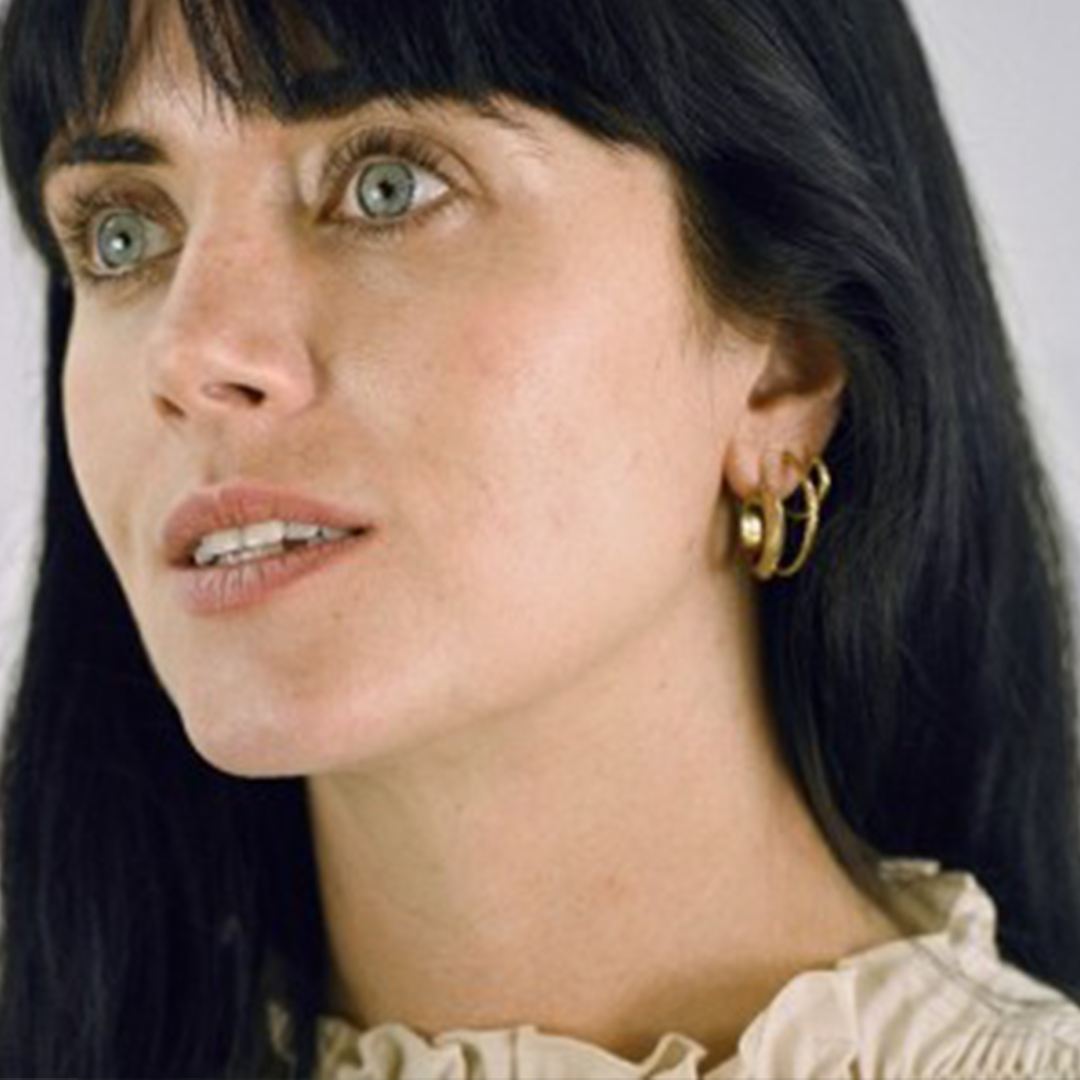17 Dec 2021 | News and features, Norway

A fatwa was issued against all those involved in the publication of The Satanic Verses. Photo: Adam Butler/PA Archive/PA Images
Norwegian freedom of speech foundation Fritt Ord has called for a state commission to investigate police handling of the attempted murder of a publisher three decades ago.
In 1993 William Nygaard – a former head of NRK and long-time director of the Aschehoug publishing house – was shot outside of his home in the Oslo suburb of Slemdal. Nygaard was left for dead on the street after being hit three times from behind as he opened his car door.
The call to look at the case again comes after one of the prime suspects in the case was tracked down by a team of journalists working for Norwegian public broadcaster NRK.
Although nobody claimed responsibility for the attack at the time, the shooting was widely believed to be linked to Nygaard’s support for Salman Rushdie and Aschehoug’s publication in Norwegian of Rushdie’s book The Satanic Verses. At the time Rushdie was the subject of a fatwa by the then Supreme Leader of Iran Ayatollah Ruholla Khomeini for heresy. Aschehoug is Norway’s second largest publisher and has a track record of publishing controversial titles.
Fritt Ord director Knut Olav Åmås has suggested that an independent investigation into the handling of the case is warranted due to the longstanding failure of the Oslo police to make progress despite ample evidence. Åmås has singled out what he sees as strange police behaviour and a failure to follow up on key leads.
“[The handling of the case] should be investigated by an independent commission due to the considerable and surprising number of strange things that have happened, not least in the Oslo Metropolitan Police ever since the murder attempt took place in 1993,” Åmås told Index on Censorship. Åmås has specifically been critical of the Oslo’ police’s failure to focus on the fatwa in the crucial period following the shooting, and the decision to let local police investigate a case of national and international significance.
Witnesses to the shooting used photofits to produce an image of the attacker at the time, but until recently nobody was ever publicly identified or charged for the crime. Last month however the name of one of the suspects was revealed by the NRK team after he was tracked down in Beirut. Lebanese national Khaled Moussawi, who was resident in Norway when the attack happened, has been accused, though he denies all claims. As part of the accusations, he is alleged to have been assisted by a still-unnamed employee of the Iranian embassy in Oslo.
“It is a very important case, both as an integrated part of the whole Rushdie affair, and also as an important precursor to the [Danish] cartoon controversy, where Islamic regimes´ pressure on freedom of expression became a dramatic global event.” says Åmås, who is a former culture editor at Norway’s leading broadsheet Aftenposten.
Moussawi lived in Norway until 1996 and regularly attended events at the Iranian embassy. Despite having a son born in Oslo his family were never granted citizenship and he was eventually deported from the country and returned to Lebanon, inadvertently complicating the investigation into the Nygaard shooting.
In 2008 the Norwegian Prosecuting Authority determined that the case should be reopened and responsibility was shifted from the Oslo Metropolitan Police to Kripos, Norway’s National Criminal Investigation Service .
Åmås says that the latest revelations mean it may finally be possible to bring Nygaard’s attackers to justice.
“It shows that Norwegian police has evidence that they should act upon, by issuing a so-called Red notice through Interpol for example – and also working with Lebanese authorities to make it possible to bring him [Moussawi] to Norway for interrogation. The same should happen to the Iranian who has been charged.” Åmås believes.
If the unnamed Iranian embassy staff member is convicted and a link is proven between Iran’s embassy and the shooting, it would also retrospectively establish the crime as an act of state-sponsored terrorism rather than attempted murder.
The Iranian Embassy in Oslo has denied the claims. “This type of allegation…is completely without basis, and we strongly reject this allegation,” it told NRK.
Moussawi also gave an extensive interview to NRK in Beirut when his identity was revealed, claiming to have been unaware of his status as one of the prime suspects. He also repeatedly denied any involvement with Hezbollah, the Lebanese religious and political movement with close ties to Iran that endorsed the fatwa against Rushdie.
“I have never been active in Hezbollah, either politically, religiously or socially,” Moussawi told NRK. “There was no political activity in the embassy. We drank tea, ate and read from the Koran,” he said.
17 Dec 2021 | Afghanistan, Magazine, Media Freedom, News and features, Volume 50.04 Winter 2021, Volume 50.04 Winter 2021 Extras
As a woman and a journalist, I have been living my worst nightmare since 15 August 2021, the day the Afghan capital, Kabul, fell to the Taliban. Since that Sunday, I have been reporting about what women have lost – and what they continue to lose – as the new regime expands its power.
The Taliban have limited every aspect of women’s lives, from banning them from school and work to introducing long black uniforms that cover them from head to toe. Having grown up in Kabul since 2001, when the Taliban were deposed, I never imagined a return to the days when women were forced to stay home because of their gender.
When I was working as a journalist based in Kabul between 2011 and 2017, the media was the last hope for dissidents. Now the media, which continue to expose wrongdoing, have turned into dissidents. Today, making an editorial decision in Taliban-controlled Afghanistan is literally making a decision about life and death.
In our small newsroom at Rukhshana Media, an all-women news website, one recurrent concern is how to tell a story with minimum risk to the people involved. The journalist is often the first to face the consequences of his or her work.
Journalism under the Taliban
Afghanistan has never been a safe country for journalists but, after 2001, the nascent Afghan media were freer than media in neighbouring countries.
Now they can hardly function without getting visits and calls from the new rulers in charge – the group that labelled the media a military target and continued to threaten them before coming to power in mid-August.
Media outlets are closing and journalists are being arrested, tortured and being forced to go on the run.
On 14 August, the day before Kabul fell, Mujeeb Khalwatgar, executive director of the Afghan media advocacy group Nai, told me his organisation had heard from journalists in Baghlan, Kandahar and Herat provinces that the Taliban were searching for them.
The same day, I talked to a young journalist from the north-eastern province of Badakhshan who said his name was on the Taliban’s blacklist. He was hiding outside Fayzabad, the provincial capital.
Days before the Taliban took Fayzabad, one of his female colleagues was attacked by a man who covered his face. She survived the attack, but they were worried whether they could survive the new regime.
I talked to several women reporters from the provinces who sought shelter in Kabul as the Taliban took over, hoping to leave the country on evacuation flights. Many of them didn’t make it.
In early November, a 24-year-old-woman, one of only three female journalists in an entire province – who asked me not to name the province – said she was on a Taliban blacklist, according to a relative who was working with the militants. The radio station she worked for was among more than 150 media outlets forced to close because of Taliban-imposed restrictions and the economic crisis a month after Kabul fell.
As the breadwinner of a family of nine, the change in rulers meant she not only lost her job but is on the run for her life, simply for being a woman journalist. In the past two months, she has been forced to change her place of residence seven times to hide from the Taliban.
Women journalists are disappearing

An Afghan female journalist attends a Taliban news conference. Photo REUTERS/Jorge Silva
Two weeks after the Taliban’s return to power, Reporters Without Borders warned that “women journalists are in the process of disappearing from the capital”. The organisation noted that, of about 700 women journalists with jobs in Kabul, more than 600 had not returned to work. Some fled while others were forced to stay at home or go into hiding.
Our investigation at Rukhshana Media shows that there are no women journalists in radio or TV working in the western provinces of Herat, Farah, Badghis and Ghor.
The systematic removal of women from the media landscape is not the only immediate consequence of the Taliban’s return to power. Just three weeks after their takeover, the militants arrested 14 journalists, with at least nine of them subjected to violence during their detention, according to the Committee to Protect Journalists. Among those detained were an editor and four other journalists at Etilaat Roz, a newspaper that was a winner of Transparency International’s Anti-Corruption Award in 2020. Two of them were tortured by the Taliban and needed hospital treatment.
Today, journalists – both men and women – are still on the run. In November, I talked to a 31-year-old journalist who for the past eight years has been an investigative reporter for local print and online outlets. Since 15 August, he has been on the run with his family of four, having spent nights in five different places. He is particularly worried about his investigations into the Taliban-run religious schools.
“No one is listening to my calls for help, no one. I am just hoping the Taliban don’t catch me alive,” he said.
Reporters Without Borders and Human Rights Watch have issued warnings about the Taliban censorship of media, especially their “media regulations” which require journalists and media not to produce content “contrary to Islam” and not to report on “matters that have not been confirmed by officials”.
The chief editor of a radio station in Kabul who, despite not having a passport, attempted (unsuccessfully) to get on an evacuation flight out of the country in late August, told me his story. Now he is back at work, where, in one month, the Taliban have visited his office four times. Twice when his colleagues used the word “Taliban” instead of “the Islamic Emirate”, he received calls warning him to be careful with the choice of words.
He says his radio station, like all other Afghan media outlets, is under the Taliban’s scrutiny. Three of his colleagues in other provinces have been ordered by provincial officials to send their news first to the Taliban before it is signed off for broadcast.
With reliable sources of information having dried up and journalists either on the run or operating in an environment of fear, censorship and self-censorship, it is becoming harder to be a journalist.
The new environment creates opportunities for the circulation of false stories and propaganda on social media. Lately, it has become difficult to distinguish between real news and propaganda. Many on social media, including some journalists, are propagating stories that correspond with their biases and social and political prejudices which then will be used by some international media to verify their own assumptions and biases.
Fake news
Exposing false and misleading stories has been one of the primary goals of our team at Rukhshana Media, where we investigated two stories directly connected to misinformation and staged reporting in the past two months.
Many news outlets reported that Mahjabin Hakimi, a 25-year-old professional volleyball player, was beheaded by the Taliban. The reports were based entirely on the claim of her coach in Kabul’s volleyball club who spoke under a pseudonym. But our investigation, in which we interviewed five sources, including her parents and a friend who was present the day her body was found, showed that she died on 6 August – nine days before the Taliban took over Kabul.
In the second story, several people connected to the family of a nine-year-old girl featured in CNN’s bombshell report on child marriage told Rukhshana Media the report was invented.
Our reporters are working on the ground to bring women’s stories to the surface of a male-dominated Afghan media. In the past months, we have partnered with two international newsrooms, The Guardian and The Fuller Project, which has helped amplify the voice of Afghan women to wider audiences outside the country.
With women journalists remaining at risk, we are trying to create opportunities for them to continue their work and tell the stories of women in Taliban-ruled Afghanistan, where they are banned from work and education and have no idea when they will be able to return to public life.
15 Dec 2021 | Magazine, Magazine Editions, Volume 50.04 Winter 2021
Playwright
Meltem Arikan is a Turkish and Welsh author who was short-listed for the Freedom of Expression Award in 2014 by Index on Censorship for her play Mi Minor.
Journalist
Caitlin May McNamara is a journalist and a campaigner who lives in London.
Activist
Nathan Law is an activist and politician from Hong Kong. In 2016, at 23, he was elected to work as a legislator for Hong Kong, being the youngest lawmaker to ever occupy a chair in the Legislative Council of Hong Kong.
15 Dec 2021 | Academic Freedom Letters, Afghanistan, Africa, Americas, Asia and Pacific, Australia, Belarus, Brazil, Hong Kong, Kenya, Magazine, Magazine Contents, Malaysia, Malta, Middle East and North Africa, Politics and Society, religion & culture, Russia, Syria, Turkey, United Arab Emirates, United Kingdom, United States, Volume 50.04 Winter 2021, Volume 50.04 Winter 2021 Extras
The Winter issue of Index magazine highlights the battles fought by theatre of resistance across the world and how they’ve been enduring different forms of censorship.
Writer Jonathan Maitland dives deeply into the history of theatre censorship in the United Kingdom and explains why British playwrights need to lose their fear and be bolder. Kaya Genç and Meltem Arikan provide a good overview of the situation in Turkey in the most recent years, where theatres have been closed down in Istanbul.
Natasha Tripney analyses the impacts of an exaggerated nationalism and how it restrains plays from moving forward.
The theatre of resistance, by Martin Bright: Index has a long history of promoting the work of dissident playwrights.
The Index: Free expression around the world today: the inspiring voices, the people who have been imprisoned and the trends, legislation and technology which are causing concern.
Women journalists caught in middle of a nightmare, by Zahra Nader: Many Afghan journalists –women in particular – have fled the Taliban or are in hiding from the brutal regime.
Hope in the darkness, by Jemimah Steinfeld: Nathan Law, one of the leaders of Hong Kong’s protest movement, is convinced that the repression will not last forever. We publish an extract from his new book.
Speaking up for the Uyghurs, by Flo Marks: Exeter university students have been successfully challenging the institution’s China policy, but much more needs to be done.
Omission is the same as permission, by Andy Lee Roth and Liam O’Connell: Malaysia’s introduction of emergency powers to deal with “fake news” was broadly ignored by the Western media – and that only emboldened the government.
I can run, but can I hide?, by Clare Rewcastle Brown: Journalist Clare Rewcastle Brown is a wanted woman in Malaysia – and the long reach of Interpol means there are now few places where she can consider herself safe.
Dream of saving sacred land dies in the dust, by Scarlett Evans: Australia’s mining industry is at odds with the traditional beliefs of the Aboriginal population and it is taking its toll on the country’s indigenous heritage.
Bylines, deadlines and the firing line, by Rachael Jolley: It’s not just pens and notebooks that journalists need in the USA, it’s sometimes gas masks and protective vests, too.
Cartoon, by Ben Jennings: “I’ve done my own research.”
Maltese double cross, by Manuel Delia: Four years on from Daphne Caruana Galizia’s murder, lessons have not been learned and justice for the investigative journalist’s family remains elusive.
“Apple poisoned me physically, mentally and spiritually”, by Martin Bright: A former Apple employee, who was fired by the tech giant after blowing the whistle on toxic waste under her office, says her fight will go on.[
]Keeping the flame alive as theatre goes dark, by Natasha Tripney: Theatre across the world is fighting new waves of repression, intolerance and nationalism, as well as financial cuts, at a time when a raging pandemic has threatened its existence.
Testament to the power of theatre as rebellion, by Kate Maltby: The Belarus Free Theatre, whose 16 members have now gone into exile to escape the Lukashenka regime, are preparing to perform at the Barbican in London.
My dramatic tribute to Samuel Beckett and catastrophe, by Reza Shirmarz: More than three decades after Index published the celebrated playwright’s work dedicated to the Czech dissident Vaclav Havel, the censored Iranian writer Reza Shirmarz has responded with his own play, Muzzled.
Why the Taliban wanted my mother dead, by Hamed Amiri: The author of The Boy with Two Hearts on why and how the family fled Afghanistan.
The first steps- Across Europe with Little Amal, by Joe Murphy and Joe Robertson: Good Chance Theatre on their symbolic take on the long journey of refugees from Syria to the UK.
Fighting Turkey’s culture war, by Kaya Genç: Theatres have been shuttered in Istanbul but the fightback by directors and playwrights continues.
I wrote a play then lost my home, my husband and my trust, by Meltem Arikan: The exiled Turkish playwright’s Mi Minör was blamed for the Gezi Park protests.
Where silence is the greatest fear, by Issa Sikiti da Silva: How Kenyan theatre has suffered under a succession of corrupt rulers, hot on the heels of colonial repression.
Censorship is still in the script, by Jonathan Maitland: British theatre has lost its backbone and needs to be more courageous.
God waits in the wings…ominously, by Guilherme Osinski and Mark Seacombe: A presidential decree that art must be ‘sacred’ has cast a free-speech shadow over Brazilian theatre.
Elephant that should be in Nobel Room, by John Sweeney: The winners of this year’s Peace Prize deserve their accolade, but there is another who should have taken the award.
We academics must fight the mob – now, by Arif Ahmed: The appalling hounding of Kathleen Stock at Sussex University is a serious threat to freedom of speech on campus.
So who is judging Youtube?, by Keith Kahn-Harris: Accused by the video behemoth of spreading misinformation, the author conducted an experiment in an effort to understand how the social media platform policies its content.
Why is the world applauding the man who assaulted me?, by Caitlin May McNamara: It is time for governments and businesses to decide where their priorities lie when it comes to the Middle East.
Silence is not golden, by Ruth Smeeth: As we enter a new year, Index will continue to act as a voice for those unable to use their own.
The road of no return, by Flo Marks and Aziz Isa Elkun: The Uyghur activist and poet, exiled in the UK, yearns for his family and friends imprisoned in Chinese concentration camps.
Bearing witness through poetry, by Emma Sandvik Ling: Poets are often on the frontlines of protest.
The people’s melody, by Mark Frary: For the first time, English readers can now experience the joys of Ethiopian poetry written in Amharic thanks to the work of Alemu Tebeje and Chris Beckett.
No corruption please, we’re British, by Oliver Bullough: The UK has developed a parallel vocabulary to avoid labelling anyone with the c-word … until now.





